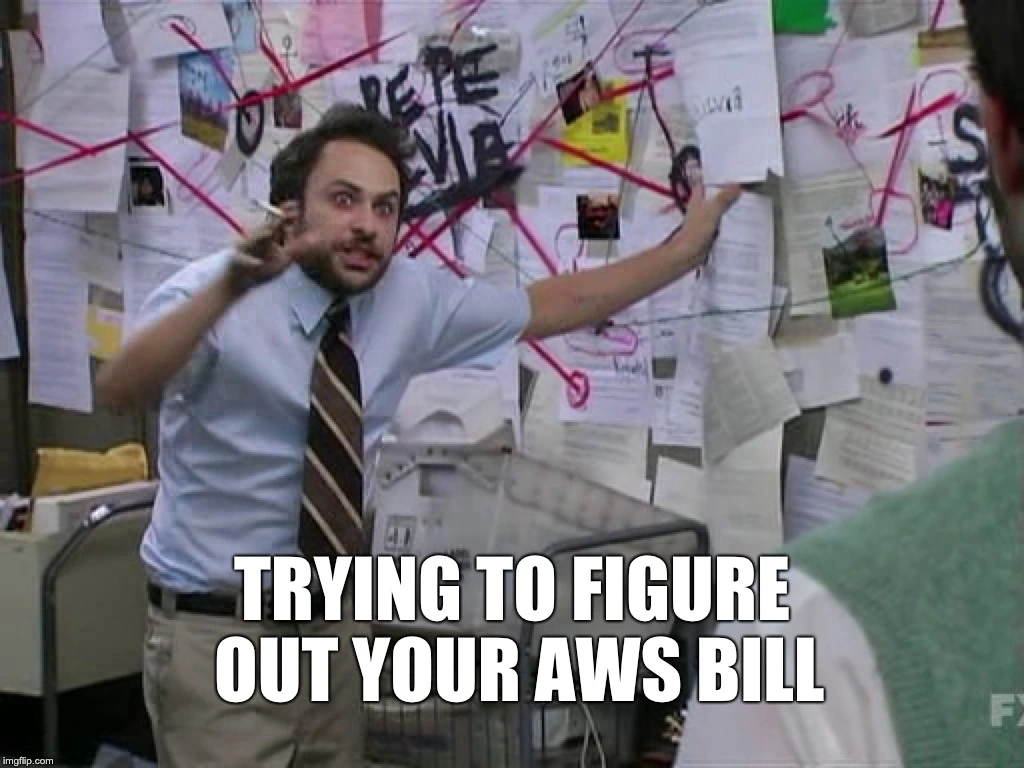Predict your AWS bill with Infracost, stop the surprises
Know what your Terraform changes cost before you apply them. No more surprise $10k bills.
You add one RDS instance in Terraform. Next month AWS charges you $847. You forgot to check the instance type
You switch from gp2 to gp3 storage to save money. Turns out you picked the wrong IOPS settings and now it costs more
A teammate deploys a NAT Gateway for testing. It stays up for 3 months. That’s $300 you didn’t need to spend
Infracost shows you what your changes cost before you apply them. Right in your terminal, right in your pull requests

The AWS bill surprise nobody talks about
You know it’s coming. You make infrastructure changes, you wait for the bill, you hope it’s not too bad
I’ve seen teams spend 20 minutes in meetings discussing whether to add a load balancer. Nobody knows what it costs. Someone guesses ‘$50 a month?’ It’s actually $200
The classic move: spin up resources for a demo, forget about them, discover them 6 months later when someone finally reads the Cost Explorer
FinOps as a discipline exists because cloud bills are impossible to predict. The solution isn’t hiring a FinOps team, it’s putting cost visibility where decisions happen: in the code review
What Infracost actually does
You write Terraform. Infracost reads it and tells you the cost
# Install
curl -fsSL https://raw.githubusercontent.com/infracost/infracost/master/scripts/install.sh | sh
# Show cost of current plan
infracost breakdown --path .Output looks like this:
Project: my-infrastructure
Name Monthly Qty Unit Monthly Cost
aws_instance.web
├─ Instance usage (Linux/UNIX, on-demand, t3.large) 730 hours $60.74
└─ root_block_device
└─ Storage (general purpose SSD, gp3) 50 GB $4.00
aws_lb.main
├─ Application load balancer 730 hours $16.43
└─ Load balancer capacity units $5.84
OVERALL TOTAL $87.01No guessing. No ‘let me check the pricing page.’ Just numbers
The real power: diff between current and proposed infrastructure
infracost diff --path . --compare-to mainShows you exactly what your PR will add to the monthly bill. Caught a $400/month mistake because someone selected the wrong RDS instance class
In CI/CD where it belongs
Every Terraform PR gets an Infracost comment showing the cost impact
# .github/workflows/infracost.yml
name: Infracost
on: [pull_request]
jobs:
infracost:
runs-on: ubuntu-latest
steps:
- uses: actions/checkout@v3
- uses: infracost/actions/setup@v2
with:
api-key: ${{ secrets.INFRACOST_API_KEY }}
- run: infracost breakdown --path . --format json --out-file /tmp/infracost.json
- uses: infracost/actions/comment@v1
with:
path: /tmp/infracost.jsonPR comments look like:
💰 Infracost estimate: monthly cost will increase by $245 📈
+ aws_rds_cluster.postgres
+$215 db.r5.large instance
+$30 500GB storage
~ aws_instance.api
-$61 t3.medium -> t3.large
+$61
Total: $2,847 -> $3,092 (+$245/mo)The person reviewing the PR sees this. They ask ‘do we really need r5.large?’ Turns out r5.xlarge was a typo. Caught before merge
This is FinOps. Not spreadsheets and quarterly reviews. Cost visibility in the workflow where changes happen
Real setup for client projects
I add this to every client’s Terraform repo
First, get an API key from Infracost (free for open source, they have a free tier for private repos too)
Add it to GitHub secrets as INFRACOST_API_KEY
Create the workflow file. Make it run on PRs targeting main
The result: every infrastructure change includes cost impact. No surprises
One client was adding Elasticache clusters in every environment. Dev, staging, prod, and three different regional failovers. Infracost showed $1,200/month. We switched to Redis on EC2 for non-prod. Cut it to $400
What it catches that you miss
Wrong instance types: You type t3.2xlarge when you meant t3.large. Infracost shows +$800/month. You fix it before apply
Forgotten resources: That test database you created 3 months ago? Still there. Still costing $215/month. Infracost breakdown shows everything
NAT Gateway sprawl: Every VPC gets a NAT Gateway. That’s $32/month per AZ. Multi-AZ across 3 environments? $288/month for internet access you might not need
Storage you didn’t optimize: Using gp2 instead of gp3 for EBS. Infracost shows the difference. Switch and save 20%
Load balancers for single instances: You created an ALB for one container. That’s $16/month + LCU charges. Just use a target group or direct instance access for dev
Integrates with Terragrunt too
Works fine with Terragrunt. Run it in each module directory:
# root.hcl can't estimate, but individual modules work
cd dev/vpc
infracost breakdown --path .
cd ../database
infracost breakdown --path .Or use infracost breakdown --config-file infracost.yml with a config:
version: 0.1
projects:
- path: dev/vpc
- path: dev/database
- path: dev/appShows combined estimate across all modules
I have this in a Makefile: make cost runs Infracost on all environments and shows total
When it’s worth it
Any team running Terraform in production. If your monthly cloud bill is over $1,000, this pays for itself immediately
Especially valuable when:
- Multiple people make infrastructure changes
- You have junior engineers learning Terraform
- You’ve been surprised by bills before
- You want cost reviews built into your process
Not worth it if you’re running a single EC2 instance that never changes. The cost is obvious
The FinOps discipline nobody wants
FinOps is spreadsheets, tagging policies, quarterly cost reviews, and someone telling you to rightsize your instances 6 months after you created them
That’s terrible. Nobody wants another meeting about cloud costs
Real FinOps: show costs when and where decisions happen. In the PR, before merge, when you can still change it without redeploying
Infracost does this. It doesn’t replace cost monitoring, but it prevents the mistakes that make monitoring necessary
A $500 mistake caught in code review costs $0. The same mistake caught in next month’s bill costs $500 plus the time to fix it
Getting started
Install it:
# Linux
curl -fsSL https://raw.githubusercontent.com/infracost/infracost/master/scripts/install.sh | sh
# macOS
brew install infracost
# Arch
yay -S infracostGet an API key:
infracost auth loginRun it on your Terraform:
cd your-terraform-project
infracost breakdown --path .See the numbers. Add it to CI. Stop guessing what things cost
I spent 6 months telling clients ‘we should probably check what this costs.’ Now Infracost shows them. They see the number, they make informed decisions, nobody gets surprised by the bill
Cost visibility should be automatic, not something you remember to check. This makes it automatic
Enjoyed this article? Share it!



